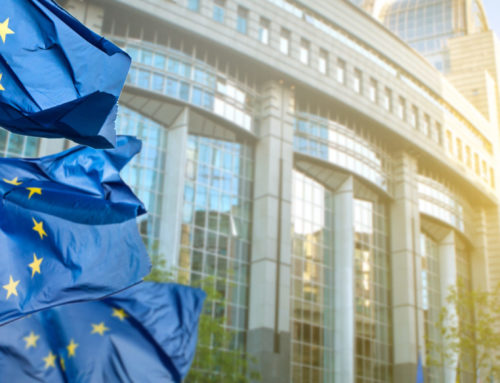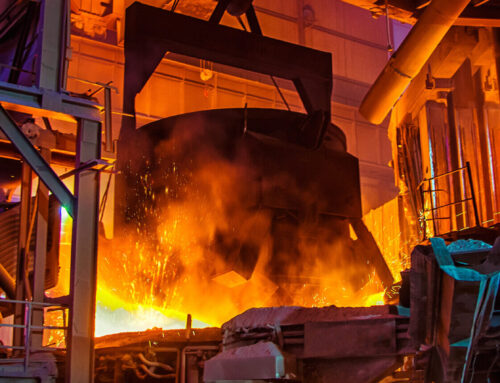Revival of carbon markets on the agenda of the Belém Climate COP
COP 30 in Belém, building on the roadmap set at the Baku Climate COP, placed access to finance at the center of its discussions.
The 2025 Climate COP therefore concluded with a declaration that many observers viewed as disappointing. The removal of language on transitioning energy systems away from fossil fuels highlighted how difficult it remains for countries to agree on — and collectively implement — a global roadmap. Each Party defended its own priorities and national interests. As a result, the burden shifts once again toward supporting adaptation for the most vulnerable. By 2035, 435 million people are expected to live in extreme poverty (source: Belém Declaration on Hunger, Poverty, and People-Centered Climate Action, 7 November 2025).
At the same time, efforts to revive carbon markets are moving forward. Ninety countries in Asia and Africa, many of which could become issuers of carbon credits, have taken part in awareness and capacity-building programs on Article 6 mechanisms of the Paris Climate Agreement and on carbon pricing.
If you would like clarity on the opportunities and risks such mechanisms may present for your company, feel free to contact us.
Below, we look back at the key decisions we have retained from the previous Climate COPs in Baku and Dubai.
Climate COP 29 in Baku : Agreement on a USD 300 billion per year financing target by 2035
The 29th Conference of the Parties on climate, held in November 2024 in Baku, Azerbaijan, had the primary objective of reaching an agreement on a new collective climate finance goal to help developing countries fund their efforts to combat climate change.
Indeed, the USD 100 billion per year from 2020 that developed countries committed to mobilize in 2009 has become insufficient to align financing commitments with needs that are now clearly identified and measured.
Negotiations at the 2024 Climate COP resulted in three financial decisions linked to the new collective quantified goal (NCQG).
The new collective goal is supported by the decision to triple the annual disbursements of four UN funds.
Significantly increasing public resources for international climate finance mechanisms
To meet the new collective quantified goal, the parties are relying on the growing contribution of public funds. Thus, Article 16 of the NCQG includes the decision to triple the annual disbursements of four UN climate-dedicated funds by 2030:
Financial Mechanism:
This mechanism was created to support developing countries in achieving the objectives of the Kyoto Protocol and the Paris Agreement. Two international funds serve as its operating entities: the Global Environment Facility (GEF) and the Green Climate Fund (GCF).
Adaptation Fund:
The AF finances concrete adaptation projects in developing countries that are vulnerable to the impacts of climate change.
Least Developed Countries Fund:
This fund addresses the special needs of 49 Least Developed Countries (LDCs) in the face of climate change. It supports the preparation and implementation of National Adaptation Programmes of Action (NAPAs), which identify the immediate adaptation needs of LDCs.
Special Climate Change Fund:
This facility finances projects related to adaptation, technology transfer and capacity-building, as well as energy, transport, industry, agriculture, forestry, waste management, and economic diversification.
Climate finance remains just a drop in the ocean of global finance.
The limited weight of climate finance within the global financial system
During COP 29, the finance committee presented its biennial assessment of climate-related financial flows. The report, “Sixth Biennial Assessment and Overview of Climate Finance Flows,” is available on the United Nations website.
The committee’s report highlights the very modest role of climate finance within the broader global financial landscape. In terms of flows, climate finance barely exceeds the amount of subsidies granted to fossil fuels (USD 1.3 billion vs. USD 1.1 billion). Moreover, climate finance flows are increasing at a slower pace: 62.5% growth between 2019/2020 and 2021/2022, compared with 147% growth in fossil fuel subsidies over the same period.
In addition, green bonds accounted for only 7% of the bond market in 2022.
Thus, for the time being, climate finance remains just a drop in the vast financial ecosystem.
The United Arab Emirates Consensus acknowledged the ineffectiveness of the process for setting national targets.
COP 28 in Dubai: Accelerating the Energy Transition
In 2023, the 2023 Climate COP was marked by the first Global Stocktake of the implementation of the Paris Agreement.
In a context of multiple crises, and under the presidency of Sultan Al Jaber—who also heads the national oil company—the final declaration, the UAE Consensus, confirmed the ineffectiveness of the current process for setting national targets, or Nationally Determined Contributions (NDCs), in driving sufficient progress in the fight against global warming.
At the same time, the final decision urged Parties to self-assign a new collective goal for 2035: a 60% global reduction in greenhouse gas emissions compared with 2019 levels. The new national roadmaps are expected in 2025.
Finally, COP 28 in Dubai will be remembered for explicitly including the transition of global energy systems away from fossil fuels among the efforts required to deliver on the promises of the Paris Agreement.
“Transitioning away from fossil fuels in energy systems, in a just, orderly and equitable manner, accelerating action in this critical decade, so as to achieve net zero by 2050 in keeping with the science.” (cma2023_L17_adv.pdf)
About Positivéco
At Positivéco, we see the new national and international regulations on CSR as an opportunity for positive growth.
Our aim: to apply financial and commercial skills to structure projects outside the traditional silos.
Since 2009, we have been supporting climate investment and development aid projects; we evaluate CSR policies and carry out extra-financial reporting for our clients. Positivéco advises financial institutions, public actors, listed and non-listed companies.
Request a callback today and discover how you can meet the new CSR requirements while serving the company’s project.

Who we are
With Positivéco, your success is our priority. Since our conception, we have always applied financial and commercial expertise outside the traditional silos, to structure successful and impactful client projects. This improves the visibility of your activities for enhanced profitability and increases your financial valuation.








Contact us now!